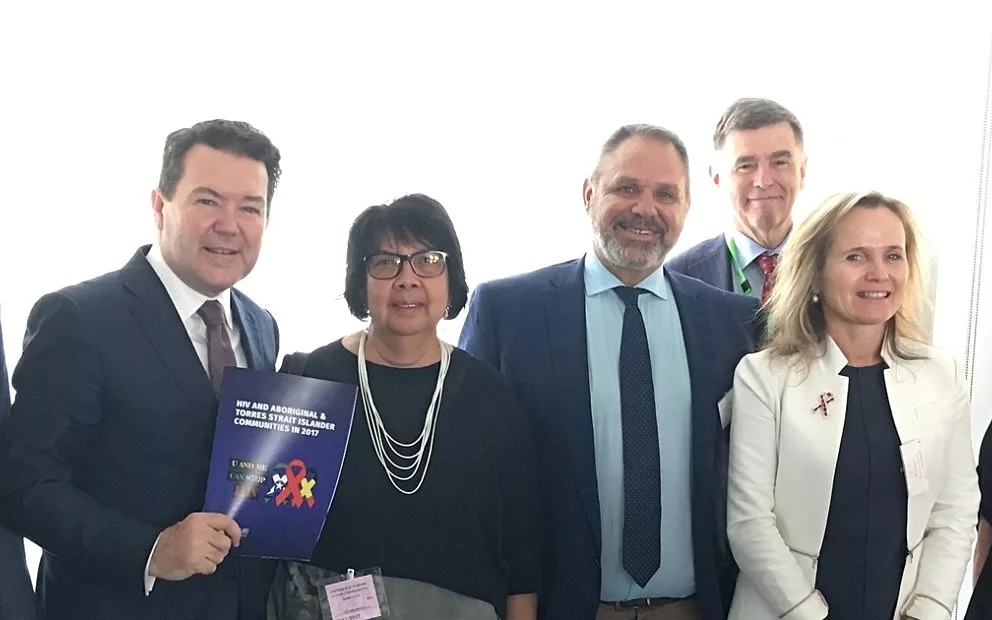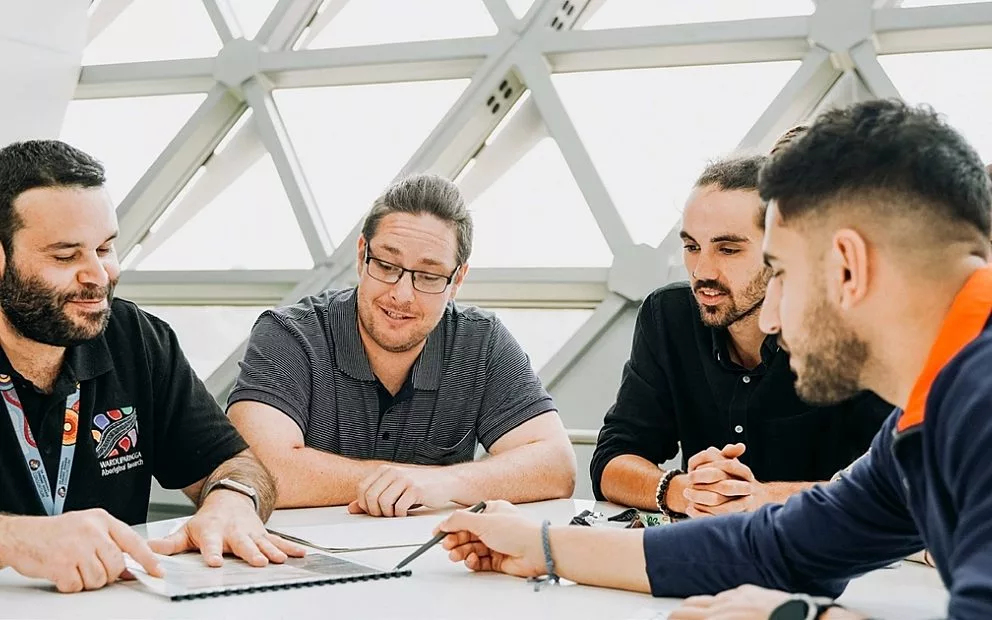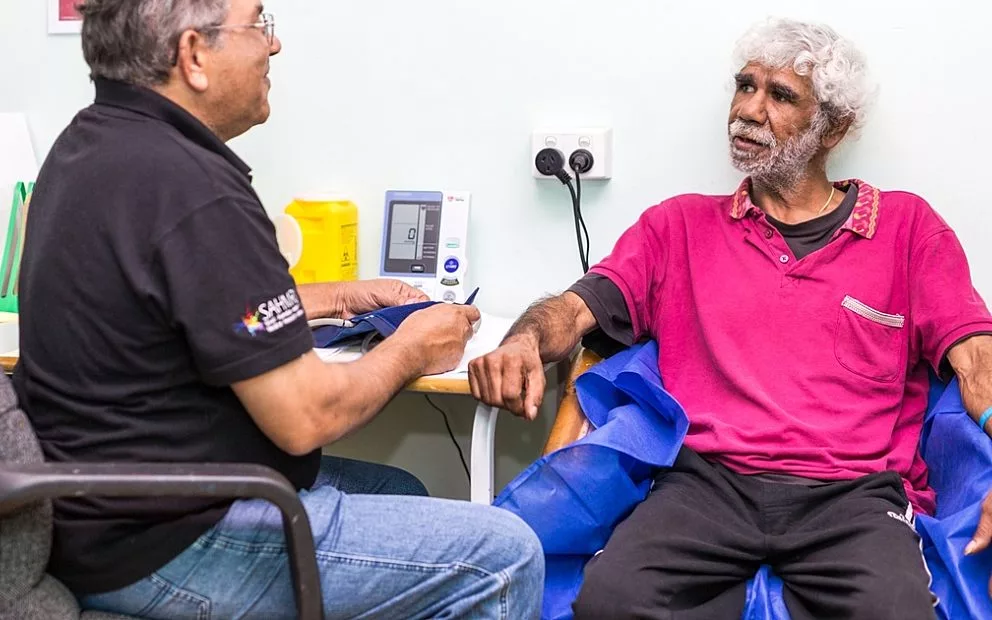With diagnoses and rates of HIV in Aboriginal communities at an all-time high since 1992, this year’s Aboriginal and Torres Strait Islander HIV Awareness Week (ATSIHAW) is more important than ever. Now in its fourth year, the role of ATSIHAW is to engage Aboriginal and Torres Strait Islander communities across Australia in HIV prevention.
ATSIHAW 2017 runs from Monday, 27 November to Sunday, 3 December. The Federal Minister for Indigenous Health, the Hon Ken Wyatt AM, MP, officially launched ATSIHAW on Wednesday, 29 November at a breakfast hosted by Senator Dean Smith, Chair of the Parliamentary Friends of HIV/AIDS, Blood Borne Viruses and Sexually Transmitted Diseases.
Other dignitaries in attendance will include: Senator Richard Di Natale, Leader of the Australian Greens; Professor Sharon Lewin, Chair of the Ministerial Advisory Committee on Blood Borne Viruses and Sexually Transmissible Infections; Dr Dawn Casey, Deputy Chief Executive Officer of the National Aboriginal Community Controlled Health Organisation (NACCHO); Ms Michelle Tobin, Chair of the Positive Aboriginal & Torres Strait Islander Network (PATSIN) - a group representing Aboriginal and Torres Strait Islander people living with HIV); as well as other members of the Australian Parliament.
Concerning statistics
Recently released national data shows the rate of HIV diagnoses among Aboriginal and Torres Strait Islander people is now more than double the rate for the non-Indigenous Australian-born population. This rate has increased by 33 per cent during the last five years, while the rate in the non-Indigenous Australian-born population has decreased by 22 per cent in the same period - creating a new gap in health between the two populations.
Associate Professor James Ward, Head Infectious Diseases Research Aboriginal Health at the South Australian Health and Medical Research Institute (SAHMRI), and ATSIHAW committee member, said that this is absolutely unacceptable.
“ATISHAW is an opportunity to promote action, awareness and advocacy at all levels of government and community, to provide much needed resources to address the rising rates of HIV,” Associate Professor Ward said.
“Action is required in policy, programming, clinical service delivery; awareness is required across communities and in clinical settings; and advocacy is required at all levels of health service delivery and governments.”
Over the last five years, significant differences have appeared in the HIV epidemic between the Aboriginal and Torres Strait Islander population and the non-Indigenous Australian-born population. Although men who have sex with men make up the majority of cases in both groups (51 per cent vs 74 per cent), a greater proportion of Indigenous cases are because of injecting drug use (14 per cent vs three per cent) or through heterosexual sex (20 per cent vs. 14 per cent).
Ms Michelle Tobin said that more work is required to ensure there are strategies for all of these groups of people in Aboriginal and Torres Strait Islander communities rolled out, and that these have impact.
The other unique issue occurring in Australia is the continuing increase in HIV rates among Aboriginal and Torres Strait Islander people each year, despite the major advances in HIV testing, diagnostics and treatment. Innovative HIV test-and-treat strategies and large-scale pre-exposure HIV prophylaxis trials (PrEP) trials have successfully engaged the gay community and are resulting in reductions across jurisdictions, but but to date, have had little impact in Aboriginal communities.
“We need to make sure that these strategies have impact on all of the Australian population - not just some,” Associate Professor Ward added.
“Aboriginal and Torres Strait Islander communities are generally not benefiting from these advances.”
Community support; an important part of ATSIHAW
The overarching theme of ATSIHAW is ‘U AND ME CAN STOP HIV’. This highlights the strengths of Aboriginal and Torres Strait Islander communities, and the role we can all play in preventing new HIV cases and improving the outcomes for people living with HIV.
This year, ATSIHAW is holding over 55 community events across Australia at Aboriginal Community Controlled Health Services and other community services. The number of ATSIHAW events and strong social media engagement, demonstrates the growing sense of community responsibility for spreading awareness of the importance of HIV prevention.
High-profile ambassadors for ATSIHAW have also been recruited, including Steven Oliver from ABC’s Black Comedy. Steven said that he’s involved in ATSIHAW because he wants to help fight and break down the stigma associated with HIV and those living with it.
Professor Kerry Arabena and Dr Pat Anderson AM are also Ambassadors for ATSIHAW, alongside 30 other community members who are all concerned about HIV in the communities.
New HIV resources for Aboriginal and Torres Strait Islander communities
A new set of resources will be launched by the Honourable Ken Wyatt AM, MP, Minister for Indigenous Health, including three animated education and awareness videos focusing on HIV, STIs and PrEP (a daily medication that can prevent HIV), which aim to enhance awareness of HIV prevention. These are housed on the website www.atsihiv.org.au, also an ATSIHAW initiative, launched in 2016.
ATSIHAW is administered by SAHMRI, with funding provided by the Commonwealth Department of Health.



